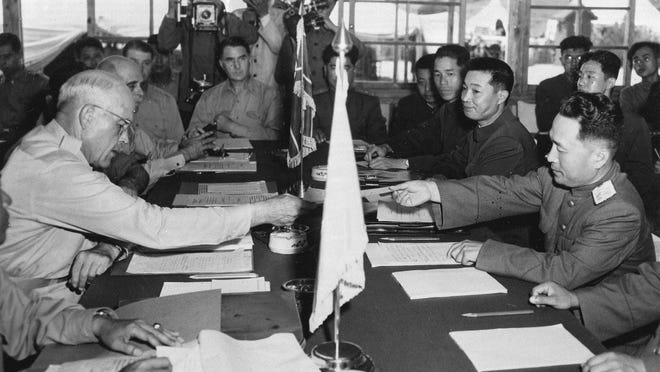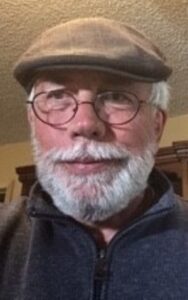- Home
- About
- Benefits & Services
- State Veterans Homes
- Nevada Veterans Memorial Cemeteries
- Community
- News
- Suicide Prevention
- Opioid Prevention
- Donate
- Fallen Heroes
- Nevada’s Veterans Memorials
- Calendar/Events
- Nevada Transition Assistance Program (NVTAP)


By Pat Hickey
This opinion column was submitted by Reno Gazette-Journal columnist Pat Hickey, a former Nevada assemblyman. He serves as the Nevada honorary consul for the Republic of Korea.
It’s been 70 years since mostly American men went off to fight a war in a place few knew anything about before being shipped there. A war-weary U.S. honored its 1882 Friendship Treaty with Korea and summoned help from 15 other nations in coming to the defense of small South Korea when it was attacked by a Communist North Korean invasion in the early Sunday morning hours of June 25, 1950.
The Korean War has been called the “forgotten war,” as it was sandwiched in between World War II and the Vietnam War. The nearly two million Americans (including 6,000 Nevadans) who served in Korea are now old. Many are remembered only by family members, friends and their fellow vets. They are quietly passing away. Sadly, they’re also fading from our national memory.
Thirty-seven thousand Americans lost their lives in far-off frigid places like the Chosin Reservoir, where U.S. Marines famously fought their way out of a massive Chinese offensive. In addition, 7,000 Americans were captured and became POWs. Of those, only 4,400 made it home alive.
One of them, 90-year-old Edward Smith of Reno, attended a small (socially distanced) gathering this past Wednesday at a Veterans Day luncheon sponsored by the Republic of Korea. Smith was captured by the communist Chinese and forcibly marched into North Korea, where he spent 33 months in captivity. For the first year, he wasn’t given a blanket. Prisoners snuggled together to stay warm in the bitter humid cold that occupies winter on the Korean Peninsula. Days consisted of wood-gathering and burial details. Ed remembers that eight to 10 of his cell mates died daily. Many were malnourished. Many just gave up. The task of burying their own friends fell upon him and his fellow prisoners. Food consisted of kennels of corn and an occasional biscuit, especially when peace talks were progressing. Like most of his generation, Ed Smith has little to say about the lot he went through. Even though, a grateful nation, South Korea — remembers and honored his service.
He was flown back to Seoul in 2003 as a guest of the South Korean government, which routinely sponsors expense-paid trips for Korean War veterans to see the miracle of a country’s transformation that’s gone from the literal rubble of a devastating conflict to a powerhouse on the world’s economic stage. In that sense, the Korean War is seen as a victory by the 50 million South Koreans who now live in a democratic republic and are enjoying an unprecedented level of prosperity.
In the 1950s, South Korea was literally one of the poorest countries in the world, with a per capita GDP of just $67. In a span of less than six decades, their GDP has grown to almost $30,000. In terms of purchasing power, South Korea is the world’s eighth-largest trade economy and ranks higher in purchasing power than the average European Union country. Korean cultural experts attribute their prosperity in part to the glimpse of modernization that came by way of allied soldiers who arrived from all corners of the globe when the Korean economy was in shambles and cities like Seoul and Pusan had been reduced to mere shantytowns.
Another unintended positive consequence of the Korean War was that America’s fighting units were integrated for the first time. Supreme Commander Matthew Ridgeway discovered that “unauthorized integrated units worked so well,” he abolished segregation decrees. We have the ravages of war to thank for a national brotherhood that grudgingly evolved through the common suffering “fellowship” troops of different colors and backgrounds experienced.
Something that should never be segregated, or ever forgotten, is the sacrifice Nevadans like Edward Smith made to a nation he never knew of, to a people he’d never met. When Gen. Douglas MacArthur gave his Farewell Address before Congress, he spoke of the commitment and friendship America should hold dear with respect to Korea.
As Nevada’s veterans pass into the “fading twilight of (their own) life,” let us remember the popular barracks ballad that MacArthur recalled that day: “Old soldiers never die, they just fade way.” Not from our memory, please. The remembrance of our veterans need never fade away.